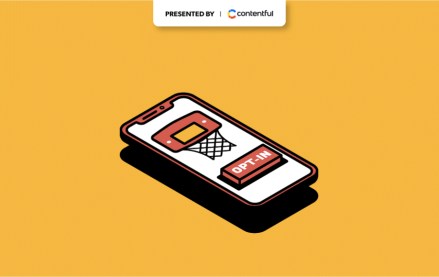As AI reshapes search, Zola turns to creators to meet Gen Z where they scroll

As a Digiday+ member, you were able to access this article early through the Digiday+ Story Preview email. See other exclusives or manage your account.This article was provided as an exclusive preview for Digiday+ members, who were able to access it early. Check out the other features included with Digiday+ to help you stay ahead
If there’s one thing keeping Zola’s new CMO up at night, it’s search — or rather the messy reinvention of it.
Barely two weeks into the role, Briana Severson is already navigating a marketing minefield, where the old playbook is fading fast and the new one is still being written.
“Were someone to ask me to sum up what’s on my mind as a marketer these days, it would be search,” said Severson.
AI is uprooting the original search bargain — slowly but surely shifting it away from the familiar model where search engines crawled publisher content, served up snippets and rewarded publishers with traffic they could monetize. Now, the exchange is starting to fray. AI-powered search still feeds on publisher content but it keeps users on its ecosystem, cutting off the referral traffic that once made the whole thing worthwhile.
Naturally, that has big implications for a brand like Zola. Wedding planning almost always starts with search — for venues, for sites, for budgets. It’s a foundation moment, and it’s a long been where Zola shines. The brand showed up early in the journey — whether through organic results or paid placements — and had a good shot at turning those queries into customers.
But that visibility, and the predictability it brought, is fading — especially among Gen Z couples now entering the wedding planning stage. As Severson explained: “Gen Z is searching in a very different way compared to how millennials search. A lot of that arguably stems from an increased reliance on human perspectives and an increased distrust of brands being brands.”
Rather than overhaul Zola’s search strategy in response, Severson is investing in creators. Younger couples aren’t sifting through Google searches; they’re scrolling TikToks, watching Instagram testimonials and curating Pinterest boards.
“We are very invested in showing up on those platforms where that new search is happening, and we’re working with influencers of all sizes in particular to tell the story of their wedding in those places,” said Severson.
Case in point: the recent wedding of creator Jaz Smith and her fiancé Kevin Callari. Over the course of the day, Smith posted more than 20 TikTok videos, flooding feeds with moments from the celebration. Zola was woven into that story as the partner for the couple’s wedding paper.
More partnerships like this are already in the pipeline, and they’ll form the foundation of what Severson called Zola’s “creative creator program”. Details are still light, as she’s only just settling into the role but the goal is clear: build a trusted roster of creators who can speak to the brand’s role in the lead-up to one of life’s biggest moments.
Some creators will have massive followings, others will be more niche. What matters is that Zola shows up throughout the full wedding journey, from planning and paper to parties and honeymoons.
“Finding more of those types of partnerships, both organically and in an influencer partnership context, is really central to our strategy,” said Severson.
Marketers have been mulling this shift for a while — that search doesn’t start with a query box anymore. It just took AI to make the move. Suddenly, anyone could produce articles, images and videos, flooding the web with content. While that unlocked scale, it also triggered a crisis of trust. People started tuning out over-optimized, lifeless content. In this new era of search, creators have emerged as the signal in the noise, offering one thing algorithms can’t fake: authenticity.
“For all these reasons, it’s becoming increasingly important to have a good product that people talk about and are loyal to,” said Severson. “That means marketing will become a lot less reliant on the brands themselves doing the heavy lifting from a marketing perspective.”
It’s why creators are permeating into more facets of marketing, from affiliate to outdoor advertising, the upfront negotiations to programmatic.
“It’s no surprise that the “socialverse” is spilling beyond social. The lines between online and offline are blurred,” said Steph Ross, vp of social and influencer at Born Social. “Formerly ‘social-only’ creators are now becoming major players across the advertising landscape. If we’re watching TV while scrolling our phones, seeing those same creators on both screens just makes sense; it brings cultural moments full circle and meets audiences where they are.”
More in Marketing

Marketers set to meet with TikTok in Cannes to discuss the platform’s future plans
Marketers on the Croisette want to know how the app will (or won’t) fit into their future plans.

Brands get in on NBA Finals buzz as fan excitement ramps up
Athletes and sporting events have become a major play for consumer brands trying to cut through the noise and stay relevant.

Rosé, deals, repeat: How to survive Cannes Lions
Between panels, late-night cocktails and endless networking, Cannes Lions can get overwhelming.








